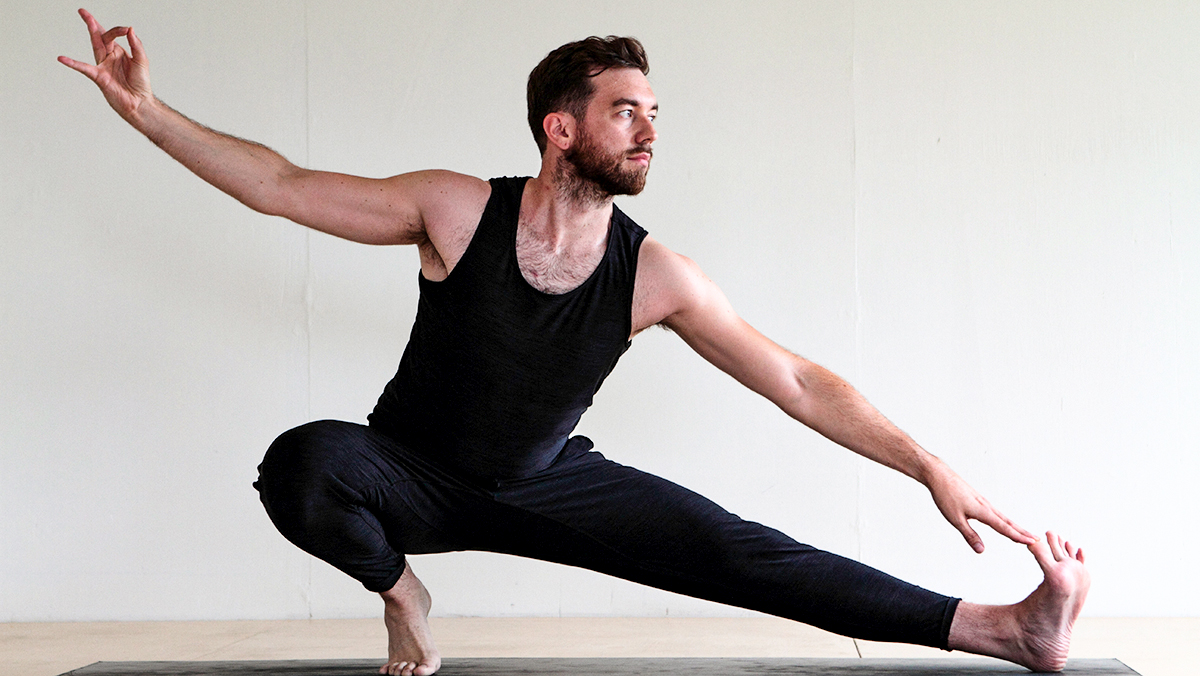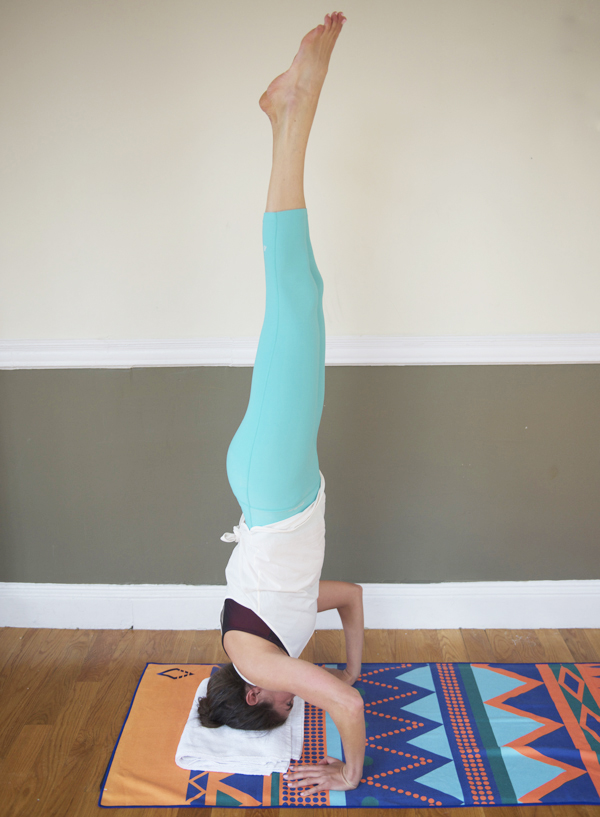
Yoga with Adriene offers a quick, easy to follow 15 minute video for morning practice. It features a variety gentle breathing and grounding postures. This workout is great if you need to boost your energy before the day. It's a great way of reenergize tired muscles, and to reconnect with your breathe. It is a wonderful way to get your day started. It is short and simple, and can be completed in just thirty minutes.

The Yoga with Adriene 15-minute video is an easy way to incorporate exercise into your day. It doesn't require any special equipment, nor do you need to have a gym to do it. You can exercise wherever you are. It is a hit with subscribers. It's not only beautiful, it makes you feel great. Yoga with Adriene is a 15-minute video that will help anyone feel their best, whether they are beginners or experienced practitioners.
Yoga with Adriene, a 15-minute video, is a great choice both for beginners and for intermediates. This video combines easy stretches with a strong focus on breathing. This is a great way to start your day, clear your mind, and prepare your body for the long days ahead. You can take a minute to just enjoy the experience. You will be glad that you did. This video is for beginners to yoga!

Carolyn Mishler is a great instructor in yoga. Each class begins in a calm and meditative way that wakes you up. The teacher shares her favourite things to be comfortable in the studio. She'll help you decide what to wear so that your yoga sessions are as enjoyable as possible. This video will make your yoga routine much easier.
FAQ
What can you do to improve your mental health?
Everybody needs to be healthy, especially if they are under stress at work, school or home. The best way to improve your mental health is to exercise regularly, eat healthy food, sleep well, and spend quality time with loved ones. Exercise makes us feel happier and releases endorphins. Healthy eating habits can also help our bodies function well. Being well-rested gives us energy to get through the day. Spending quality time with loved ones can improve our relationships and reduce stress.
Why mental health is important?
Play, work, learning, and love are all important. Our mental health is a reflection of our overall well-being. The physical, psychological as well as social, spiritual and environmental factors that influence us every day are all part of mental health. The good news is that there are many ways to care for yourself mentally, physically, emotionally, spiritually, socially, and environmentally. It doesn't take all of the above at once. Just start somewhere.
Understanding where your mental health stands now is the first step toward improving it. Take this quiz and find out how much you're doing to support your mental wellbeing. If your score is low you might need to change your lifestyle.
Suppose you scored high, congratulations! Let's now look at what you can do to maintain or improve your mental health.
-
Get enough sleep Getting adequate rest helps keep your brain sharp and energized. Get at least 7 hours of sleep every night according to the American Academy of Pediatrics.
-
Exercise Regularly. Exercise releases endorphins that make you feel happy. Five times per week, aim for 30 minutes of exercise.
Is it possible that I am depressed?
Teens are often affected by depression. But, many teens struggle with depression.
This doesn't necessarily mean you're weak or insane. Most people who feel depressed don’t realize it. Depression can be a medical condition.
There are different kinds of depression. Some people feel only sadness. Others experience other emotions. There are also different levels.
Some people are mildly depressed while others experience severe depression. It's important that you understand that depression doesn't always have to be bad. Sometimes, it helps us cope with stressful events.
If you feel constantly tired or sad, consult a doctor. Your doctor can diagnose you and determine whether you need treatment.
What do psychologists think about mental health and well-being?
Psychologists believe that mental well-being is an integral part of human development. They also believe that mental health is not only about having no mental illnesses but also about being mentally fit.
Psychologists have different views regarding mental health. Psychologists believe that mental health does not need to be important because so many people do not have mental illness. Other psychologists think that mental health is essential because without it, we can't function properly.
How can I prevent mental health issues?
Preventing mental health issues is easier said than done. But, here are some tips to keep in mind:
-
Don't drink alcohol. Alcohol can affect your moods and increase your risk of depression.
-
Avoid drugs. Avoid using drugs.
-
Sleep enough. You can feel anxious or depressed if you don't get enough sleep.
-
Exercise regularly. Exercise makes you feel happy and releases endorphins.
-
Eat healthy foods. Eating junk food can make you feel sluggish and unhappy.
-
Spend quality time with those you love. Spending time with people you love can make you feel happier.
-
Have fun. Have fun and explore new things.
-
Take breaks from social media. Social media sites can make people feel lonely and isolated.
-
Take care of yourself. Treat yourself nicely, even if you aren't feeling great.
-
Ask for help. Ask for help if it's difficult to cope. Talking to a family member or friend can be helpful.
-
It's okay for you to cry. Crying helps to relieve tension and stress. It doesn’t mean something bad happened.
-
Keep busy. Find something you like to do.
-
Maintain good hygiene. Neglecting to maintain a clean environment can lead to a feeling of unattractiveness and lackluster appearance.
-
Keep connected. Stay positive by connecting with others.
-
Learn how to relax. Meditation and yoga are two relaxation techniques that can help you deal with stress better.
-
Find meaning in what you do. You can find fulfillment in your hobbies and work by finding meaning.
-
You should be focusing on the moment. Focusing on the present moment will allow you to stop worrying about the future.
-
Set goals. It can be motivating to set goals.
-
Do something kind for yourself. It can increase self-esteem to do something nice for yourself.
-
Practice gratitude. Gratitude can help to appreciate all the blessings in your life.
-
Volunteer. Volunteering is an enjoyable way of spending time and making a difference in this world.
-
Give back. Giving back to others can make it feel fulfilling.
-
Pay attention to warning signs. If you notice any changes in behavior, don't hesitate contacting help.
Statistics
- More than 40 million adults in the United States have an anxiety disorder, but less than 37% of people seek mental health treatment for their symptoms. (talkspace.com)
- Similarly, while there is some agreement about the boundaries of typical mental disorders 2, there is likely less agreement about those for positive mental health. (ncbi.nlm.nih.gov)
- Similarly, for positive mental health, there is likely to be substantial agreement about some typical components (e.g., resilience to stress) 6, and controversy about more atypical components (e.g., career consolidation). (ncbi.nlm.nih.gov)
- According to the National Alliance of Mental Illness (NAMI), one in five Americans experiences mental health issues which translates to more than 40 million adults a year. (doctorondemand.com)
- In any given year, an estimated 18.1% (43.6 million) of U.S. adults ages 18 years or older suffered from any mental illness, and 4.2% (9.8 million) (healthypeople.gov)
External Links
How To
How to tell if you need help from a mental-health expert
There are some indicators that will alert you to the possibility of professional assistance. It is best to see a doctor if you spot any warning signs.
-
You feel lost in your own head.
-
You have been experiencing trouble sleeping.
-
Concentrating can cause your thoughts to race.
-
You start to think about suicide.
-
You feel helpless.
-
It feels like your life isn’t worth living.
-
You are losing interest in the things you once loved.
-
You've stopped eating.
-
You have been withdrawn.
-
You're using drugs and alcohol to deal with stress.
-
You're starting to lose close friends and family members.
-
Other physical symptoms, such as stomachaches, backaches and headaches may also be present.
It is imperative that you see a doctor immediately if you are experiencing any of the above symptoms.